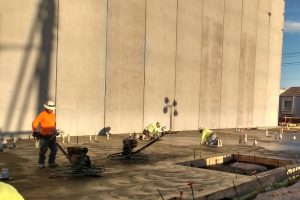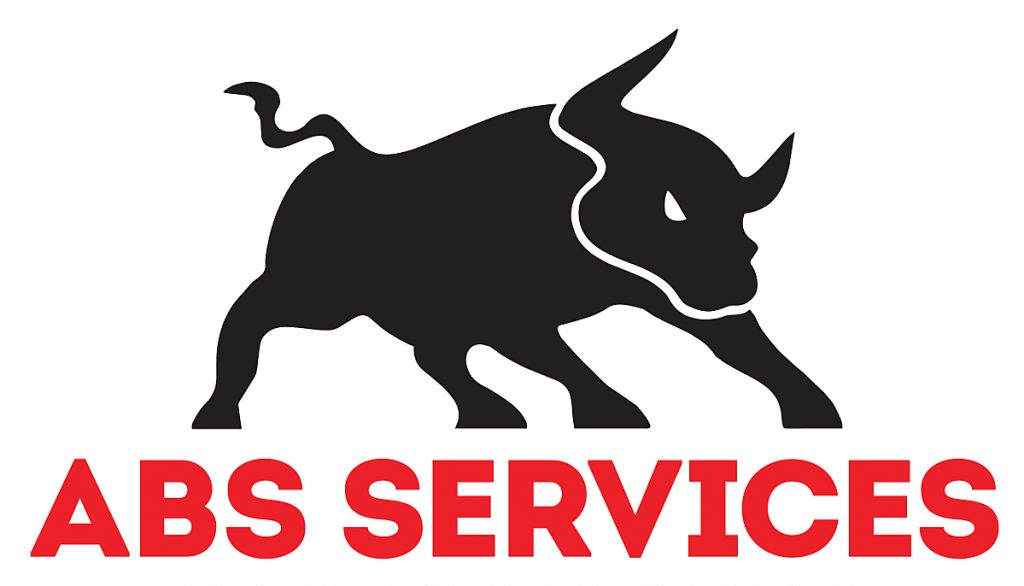 Commercial buildings demand sturdy, reliable foundations to support their substantial weights, expansive footprints, and heavy foot traffic. Constructing a solid commercial foundation is crucial, as it serves as the bedrock for the entire structure, ensuring safety, stability, and longevity. In this comprehensive guide, we’ll delve into the key principles and the six most prevalent types of commercial building foundations. By understanding the unique attributes and applications of each foundation style, you can make an informed decision that aligns with your project’s specific requirements, soil conditions, and environmental factors.
Commercial buildings demand sturdy, reliable foundations to support their substantial weights, expansive footprints, and heavy foot traffic. Constructing a solid commercial foundation is crucial, as it serves as the bedrock for the entire structure, ensuring safety, stability, and longevity. In this comprehensive guide, we’ll delve into the key principles and the six most prevalent types of commercial building foundations. By understanding the unique attributes and applications of each foundation style, you can make an informed decision that aligns with your project’s specific requirements, soil conditions, and environmental factors.
The Fundamental Principles of Commercial Foundations
The primary role of a commercial foundation is to provide a level, even plane for construction to commence. These foundations distribute the structure’s weight uniformly across the site, preventing any section from becoming overburdened and the building from leaning or shifting. Foundations also act as anchors, safeguarding against structural disturbances caused by severe weather, seismic events, or nearby construction activities. The principal elements that contribute to a robust commercial foundation include:
Reinforced Concrete
Compared to standard concrete mixes, reinforced concrete is significantly tougher due to the addition of steel reinforcing bars, known as rebar. The concrete itself offers exceptional compressive strength to handle the immense weights of commercial structures, while the rebar provides the necessary tensile flexibility to prevent stretching, bending, or breaking.
Piles, Posts, and Beams
These components, made of either concrete or steel (timber is now obsolete), serve as both supporters of the building’s weight and transmitters of the load into the ground. In some cases, it may be sufficient to drive these elements into a deep soil layer if the upper layer cannot handle the load. In other situations, it becomes necessary to sink them into the deeper rock strata.
Foundation Walls
Composed of concrete or concrete masonry units, foundation walls provide additional stability to many commercial constructions. Masonry units come in diverse sizes and shapes, making them a versatile option for constructing foundation walls. These durable and long-lasting foundation additions are commonly seen in low-rise commercial buildings.
The Six Most Common Types of Commercial Foundations
Concrete is a powerful load-bearing material, but it must work in harmony with the structure’s nature and the underlying soil’s strength to perform its function effectively. Environmental factors like heat, wind, and cold are also crucial considerations, as winters can be particularly challenging for concrete foundations. Here are the six most widely used layouts in commercial construction:
1. Slab-on-Grade Foundations
The standard slab-on-grade design consists of concrete poured directly into the excavated soil to create a single surface for construction. In areas prone to freezing conditions, a floating version of this foundation may be used, which does not make direct contact with the frosty ground. The monolithic nature of slab-on-grade foundations makes them highly resistant to issues like mold, mildew, and pests.
2. Mat Foundations
Also known as rafts, mat foundations distribute the structure’s entire weight evenly across the site via columns on the upper floors. These slabs are well-suited for areas where the soil’s load-bearing capacity is low, as they help guard against differential settlement (shifting, contraction, or expansion of underlying soil) and allow for the inclusion of basements in commercial constructions.
3. Spot Footing Foundations
Spot footing foundations are common in commercial construction and support a single point of contact, such as a post, pier, or beam, between the foundation and the underlying soil. These are akin to a series of mini-foundations, as they can be deployed as numerous as the structure’s columns require, and they are made of rebar-reinforced concrete.
4. Drilled Shaft Foundations
Drilled shaft foundations, also called Caisson foundations, are designed to carry particularly high structural capacities. They achieve this by carefully calculating either shaft resistance or toe resistance (the level at which the base of a pile resists the earth). Some drilled shaft foundations can descend up to 100 meters and may utilize both resistance metrics.
5. Pile Foundations
Pile foundations are another deep foundation design that transfers the structure’s weight further underground to a plane of hard rock. Piles are typically used where the rock strata is not too far underground to warrant a drilled shaft. These foundations provide structural resistance through end-bearing piles that offer toe resistance and/or friction piles to transmit the load directly into the soil.
6. T-Shaped Foundations
T-shaped foundations consist of multiple concrete footings driven deep underground beneath the frost layer, making them highly resistant to freezing. Walls are then erected on these that reach up to the surface for added support before the slab (usually reinforced by a wire mesh layer) is poured between them. Tall commercial buildings and sites subject to the freeze/thaw cycle benefit greatly from T-shaped foundations.
Factors to Consider When Choosing a Commercial Foundation
Selecting the most suitable foundation for your commercial construction project requires in-depth consultation with concrete experts. Their knowledge and experience remain an invaluable resource, even if your foundation is already in place, as they can help you understand the current state of your structure and prepare you to maintain it effectively.
Soil Conditions
The strength and stability of the underlying soil are critical factors in determining the appropriate foundation type. Weak, unstable, or uneven soil may necessitate the use of deeper, more robust foundation systems, such as drilled shafts or piles, to ensure the building’s long-term stability.
Environmental Factors
Environmental conditions, including climate, weather patterns, and seismic activity, can significantly impact the performance and durability of a commercial foundation. Foundations in regions prone to freezing temperatures, heavy rainfall, or seismic events may require specialized designs, such as T-shaped foundations or those with enhanced resistance to lateral forces.
Building Size and Weight
The size, height, and weight of the commercial structure are also crucial considerations. Taller, heavier buildings generally require deeper, more substantial foundations to distribute the load effectively and prevent settling or structural distress.
Construction Timelines and Budgets
The selected foundation type can also impact the construction timeline and overall project budget. Some foundation systems, such as drilled shafts or piles, may be more complex and time-consuming to install, while others, like slab-on-grade or spread footings, may be more cost-effective but less suitable for certain site conditions.
The Importance of Partnering with Concrete Experts
Every aspect of commercial success hinges on the foundation, from supporting the structure to protecting the people and equipment within. Having the right partners with extensive concrete expertise can deliver a solid foundation in an efficient and cost-effective manner. Experienced concrete professionals can provide valuable guidance on the most appropriate foundation type for your specific project, taking into account the unique site conditions, structural requirements, and budgetary constraints. They can also assist with the installation process, ensuring the foundation is built to the highest standards and can withstand the demands of the commercial building. By collaborating with reputable concrete experts, you can be confident that your commercial project will have a strong, reliable foundation that will support the structure for years to come, contributing to the overall success and longevity of your business.
ABS Provides Concrete Services
Concrete is one of the most widely used construction materials in the world, and concrete services are essential for any construction project. Concrete services encompass a wide range of activities, from pouring and finishing concrete to repairing and maintaining existing concrete structures. Whether you’re building a new property or renovating an existing one, concrete services are crucial to ensure the durability and longevity of your construction project.
> Learn More
Selecting the right commercial concrete foundation is a critical decision that can make or break the success of your construction project. By understanding the key principles and the six most common foundation types, you can make an informed choice that aligns with your specific site conditions, structural requirements, and budgetary constraints.
Contact us (513-617-1401) for more information or a quote
—

About ABS Services
ABS Services provides comprehensive commercial construction services to Greater Cincinnati, Northern Kentucky, and Southeast Indiana. We have the experience, equipment, and the right team to get the job done!
> Learn More
